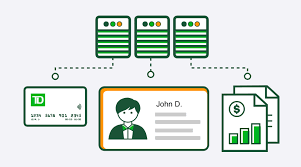The dangers associated with web browsing are often underestimated. It’s crucial to understand these risks and take proactive measures to mitigate them through some straightforward yet effective strategies. In today’s world, internet usage has become a fundamental aspect of our everyday routines. However, this convenience carries inherent security threats. While it’s impossible to eradicate every risk that comes with online activity, ultimately, users can adopt practices that significantly reduce their vulnerability to such dangers. This article will highlight three prevalent risks currently faced by internet users and offer guidance on making safer browsing decisions.

First and foremost, consider the impact of browser extensions. These tools have gained popularity for enhancing our online experiences, offering various functionalities and integrations with platforms like Google and Zoom. Although many extensions serve valuable purposes, they also present opportunities for cybercriminals to introduce harmful code into your system. Some malicious extensions may masquerade as helpful tools or be cleverly named to mimic legitimate software, luring unsuspecting users during their browsing sessions. If you inadvertently install one of these deceptive programs, you could unwittingly grant cybercriminals access to your device.
To safeguard yourself and your organisation from potential threats, it is advisable to download extensions solely from the official browser extension store. Furthermore, reviewing your existing extensions is a prudent practice; ensure you recognise and actively use each one. Removing any unnecessary extensions not only declutters your browser but also diminishes the likelihood of falling victim to a cyber attack.
Most browsers provide recommendations on how to safely obtain, manage, and eliminate unknown extensions. Adhere to those guidelines for a more secure browsing experience. Ultimately, maintaining awareness and staying informed are essential components in safeguarding your digital security as you navigate the online landscape.

When it comes to handling their passwords, many people have likely encountered the suggestion to utilize a password manager such as LastPass, and we wholeheartedly endorse this approach. However, despite the clear advantages of these tools, we’ve observed that numerous individuals continue to rely on their web browser’s built-in password storage feature. This practice needs to be more secure and equates to using a genuine password manager. The underlying technology of dedicated password managers is vastly superior to that of browser-based options.
Storing your login credentials in a web browser can jeopardise your sensitive information. These built-in features do not provide adequate protection for your passwords and can be easily compromised by anyone with access to your device. This isn’t just a hypothetical risk; it has occurred in real situations, including an incident involving someone at the Lawrence Berkeley National Lab (LBNL). Just imagine the implications if all your saved passwords fell into the hands of an attacker—this could lead to serious problems both professionally and personally.

Browser password storage offers convenience at the expense of security; it prioritises ease over protection. For this reason, the Information Technology (IT) team at LBNL strongly advises disabling any options that allow for saving passwords or auto-filling login details. While you may find it slightly less convenient to enter your credentials manually each time, this minor inconvenience is a worthwhile trade-off for enhanced security.
If you’re looking for a reliable method for securely managing your passwords, consider adopting a dedicated password manager like LastPass or exploring other trusted alternatives.
A reliable password manager such as LastPass is compatible with all leading browsers and operating systems, functioning independently as a third-party tool rather than being tied to any specific browser. It’s crucial to keep your computer and applications updated for optimal online security. Web browsers like Chrome and Firefox are built to automatically download and install updates in the background whenever they become available. However, if you leave your browser running for long stretches, you may overlook significant updates for both the browser itself and its extensions.

These updates frequently contain vital security fixes that address vulnerabilities that hackers could exploit. Neglecting to update your browser and extensions regularly can expose you to various security threats, including malware attacks or phishing schemes. Therefore, it’s essential to routinely check for updates and restart your browser if there are any pending installations. To ensure that everything is current, you can manually look for updates in your browser’s settings menu.
Additionally, it is wise to enable automatic updates and frequently close and reopen the browser to guarantee that all pending updates are applied. By proactively managing these updates, you can significantly enhance your protection against online dangers while safeguarding your sensitive information.
Maxthon
In the vast digital landscape, where our lives are increasingly intertwined with technology, safeguarding your passwords and personal information becomes paramount. Imagine yourself navigating the web, a seemingly endless expanse filled with opportunities and connections. Yet lurking beneath this surface is a realm of potential threats that requires your vigilance.
At first glance, the option to save your passwords within your web browser may appear to be a convenient solution—almost like a trusted companion helping you remember all those intricate combinations of letters and numbers. However, it’s crucial to approach this convenience with caution. The very software designed to enhance your online experience can harbour vulnerabilities that malicious individuals might exploit. These flaws could allow them access to your sensitive information without you even realising it—a disturbing thought indeed.
Instead of trusting the browser’s built-in password management features, consider turning to dedicated password managers. Think of these tools as fortified vaults specifically crafted for storing your login details securely. By consolidating all your credentials in one secure place, you not only bolster your defences but also simplify the often cumbersome task of managing numerous accounts.
To further enhance your online security, it is wise to turn off the password-saving feature available in most browsers. If you’re using Google Chrome, navigating this process is straightforward: simply head into Settings and explore the Advanced section. There, you’ll find options related to Autofill or Manage Passwords; these settings will guide you toward turning off that tempting yet risky feature.

For those who prefer Firefox as their browsing platform, fear not! Just navigate to Options followed by Privacy & Security; there, you’ll uncover similar controls that allow you to take charge of how your passwords are handled. And if Microsoft Edge is more up your alley? You’ll discover its autofill settings nestled under Advanced Settings within the main menu—easy enough for anyone willing to look.
But don’t stop there; enhancing online safety goes beyond mere browser adjustments. Picture fortifying the castle that is your computer with additional layers of protection—this includes employing robust privacy tools alongside vigilant practices. Keeping antivirus software up-to-date on all devices serves as a crucial line of defence against malware and harmful scripts lurking in dark corners of cyberspace—threats that could compromise not just individual accounts but entire systems.
By embracing these strategies and taking these precautions seriously, you’re not merely improving security; you’re crafting an environment where personal information can thrive safely amid an ever-evolving digital world. With each proactive step taken—from turning off auto-saved passwords to installing reliable antivirus programs—you’re ensuring a more secure browsing experience while exploring everything this vast internet has to offer without fear or hesitation.
